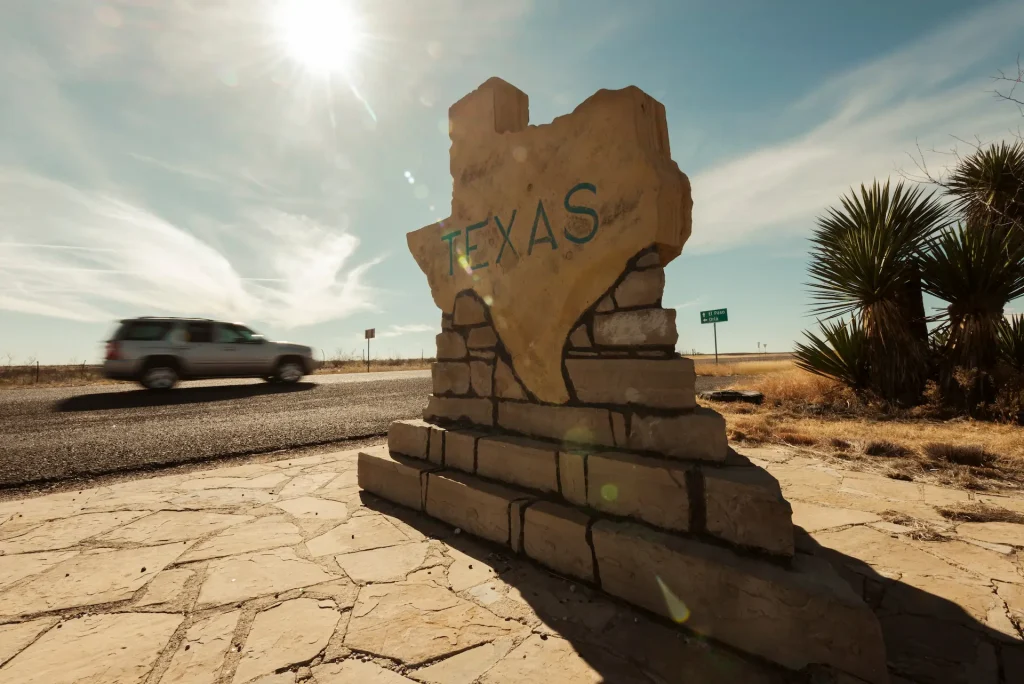Understanding Texas Highway Laws: A Comprehensive Guide

Navigating the vast Texas highways demands more than just a keen sense of direction, it requires an understanding of the laws and regulations that govern these roadways. From safety belt requirements to speed limits and distracted driving laws, adhering to these rules is not only a legal obligation but also an important step in ensuring the safety of yourself and others on the road.
At The Callahan Law Firm, we understand the importance of staying informed about Texas highway laws. We aim to provide accurate and up-to-date information to help you navigate the roadways safely, responsibly and with confidence.
Safety Belts: Protecting Lives on the Road
The importance of safety belts cannot be overstated. Case studies have shown time after time just how important these measures are in saving lives and preventing serious injuries and fatalities in the event of a collision. The Texas Transportation Code mandates that all drivers and front-seat passengers aged 17 and older must wear a safety belt while the vehicle is in motion.
Children younger than 8 years old must be properly secured in an appropriate child safety seat or booster seat, depending on their age and height. Failure to comply with these safety belt laws could result in fines and penalties.
According to the Texas Department of Transportation (TxDOT), unbuckled drivers and passengers involved in serious crashes face hefty fines. However, the true cost of neglecting safety belt usage can be far more severe, such as preventable injuries, the loss of life, and the emotional toll on loved ones.
Speed Limits: Balancing Safety and Efficiency
Speed limits are designed to balance efficient travel and safe road conditions. In Texas, the standard speed limit on most highways and rural interstates is 70 mph unless otherwise posted. However, there are specific zones where lower speed limits are restricted to account for increased risks and potential hazards.
Within city limits and urban areas, the maximum speed limit is typically 30 mph unless otherwise posted. School zones, marked by distinct flashing lights or signage, often have reduced speed limits of 20 mph or less during specified hours when children are present. Construction and maintenance zones also request lower speeds to protect workers and accommodate temporary traffic patterns.
Violating speed limits can have serious consequences, including hefty fines, license suspensions, or possibly criminal charges for excessive speeding. More importantly, excessive speed drastically reduces reaction time and increases the risk of losing control of the vehicle, putting the lives of drivers, passengers, and pedestrians at risk.
Distracted Driving: Staying Focused Behind the Wheel
With the increasing presence of smartphones and in-vehicle technology, distracted driving has become a major concern on Texas highways. According to TxDOT, one in five crashes in the state involves distracted driving, and these crashes claimed the lives of over 131 people in 2023 alone.
To combat this dangerous trend, Texas has implemented several laws aimed at curbing distracted driving. The statewide ban on texting while driving prohibits all drivers from reading, writing, or sending electronic messages while operating a motor vehicle. Additionally, drivers in school zones are prohibited from using handheld devices altogether during specified hours.
However, distracted driving extends beyond just texting and cellphone usage. Eating, adjusting the radio, or even engaging in conversations with passengers can divert a driver’s attention from the road, thus increasing the risk of a collision. By staying focused, scanning the road ahead, and minimizing distractions, drivers can significantly improve their reaction times and avoid any potential hazards.
Collision Prevention: Defensive Driving Tips
While adhering to traffic laws is crucial, practicing defensive driving techniques can further enhance your chances of staying safe on Texas highways. Maintaining a safe following distance from the vehicle ahead is essential as it provides ample time to react to sudden braking or unexpected obstacles. TxDOT recommends allowing at least three seconds of following distance when driving a passenger vehicle on the highway.
Scanning the road ahead and being aware of your surroundings can also help you anticipate potential hazards and make informed decisions. Texas law dictates that drivers must yield the right-of-way to pedestrians, emergency vehicles, and other vehicles when appropriate.
When navigating intersections or merging onto highways, it’s critical to exercise caution and follow the rules of the road. Failure to yield, improper lane changes, or disregarding traffic signals can lead to serious collisions and potential legal consequences.

Railroad Crossing Safety: Awareness and Caution
Railroad crossings present a unique set of risks on Texas highways, and it’s crucial to exercise extreme caution when approaching these intersections. Texas law requires drivers to stop within 15 to 50 feet of a railroad crossing when the warning signals are active, known as flashing lights, gates, or bells; these signals indicate an approaching train.
Even if warning signals are not activated, drivers should slow down, look both ways, and proceed with extreme caution when crossing railroad tracks. It’s essential to remember that trains cannot stop quickly, and the consequences of a collision can be catastrophic.
Drivers can significantly reduce the risk of an accident by remaining vigilant, obeying warning signals, and never attempting to beat a train across the crossing.
Building a Safer Texas: The Role of Highway Laws and Responsible Driving
Navigating the highways of Texas requires more than just knowledge of the roads, it demands a firm understanding of the laws and regulations that govern these roadways. From safety belt usage to speed limits, distracted driving, and railroad crossing safety, following these rules is not only a legal obligation but also a crucial step in ensuring the safety of yourself and others on the road.
At The Callahan Law Firm, we encourage all drivers to stay informed, practice responsible driving habits, and prioritize safety above all else. By working together and showing respect for one another on the roads, we can create a safer and more efficient transportation system for all Texans.
If you or a loved one has been involved in a highway accident, do not hesitate to contact us. We have a team of experienced car accident lawyers and truck accident lawyers with a long history of success in representing people harmed in motor vehicle crashes. Schedule a no-fee consultation today to discuss your case and see what we can do to help.
FAQ:
What are the rules of the road in Texas?
The rules of the road in Texas include obeying speed limits, wearing seat belts, not using handheld devices while driving, and following traffic signals and signs. Always yield to pedestrians and emergency vehicles.
How do you drive on Texas highways?
Driving on Texas highways requires adherence to speed limits, maintaining a safe following distance, using signals when changing lanes, and being aware of large trucks. Always drive defensively and stay alert to changing road conditions.
Does Texas have a flow of traffic law?
Yes, Texas has a flow of traffic law. Drivers must keep up with the flow of traffic, not impede faster vehicles, and use the right lane for slower speeds or when not passing.
Is driving in the left lane illegal in Texas?
In Texas, driving in the left lane is not illegal, but it is intended primarily for passing. Slower traffic should keep right to allow faster vehicles to pass safely on the left.

Michael S Callahan is an attorney and founder of The Callahan Law Firm. He focuses his practice on representing individuals and families in personal injury cases involving motor vehicle and truck accidents, workplace accidents and defective products. With over 25 years of experience, he is dedicated to fighting on behalf of people whose lives have been forever altered by the negligence and carelessness of corporations and individuals. Originally trained as a mechanical engineer, Michael has been practicing law and fighting for justice for those who need it most since 1994. He is board-certified in Personal Injury Trial Law by the Texas Board of Legal Specialization and a member of various esteemed legal associations. Outside of work, Michael enjoys spending quality time with his family, outdoor activities, and continually striving to improve as a trial lawyer and human being.











